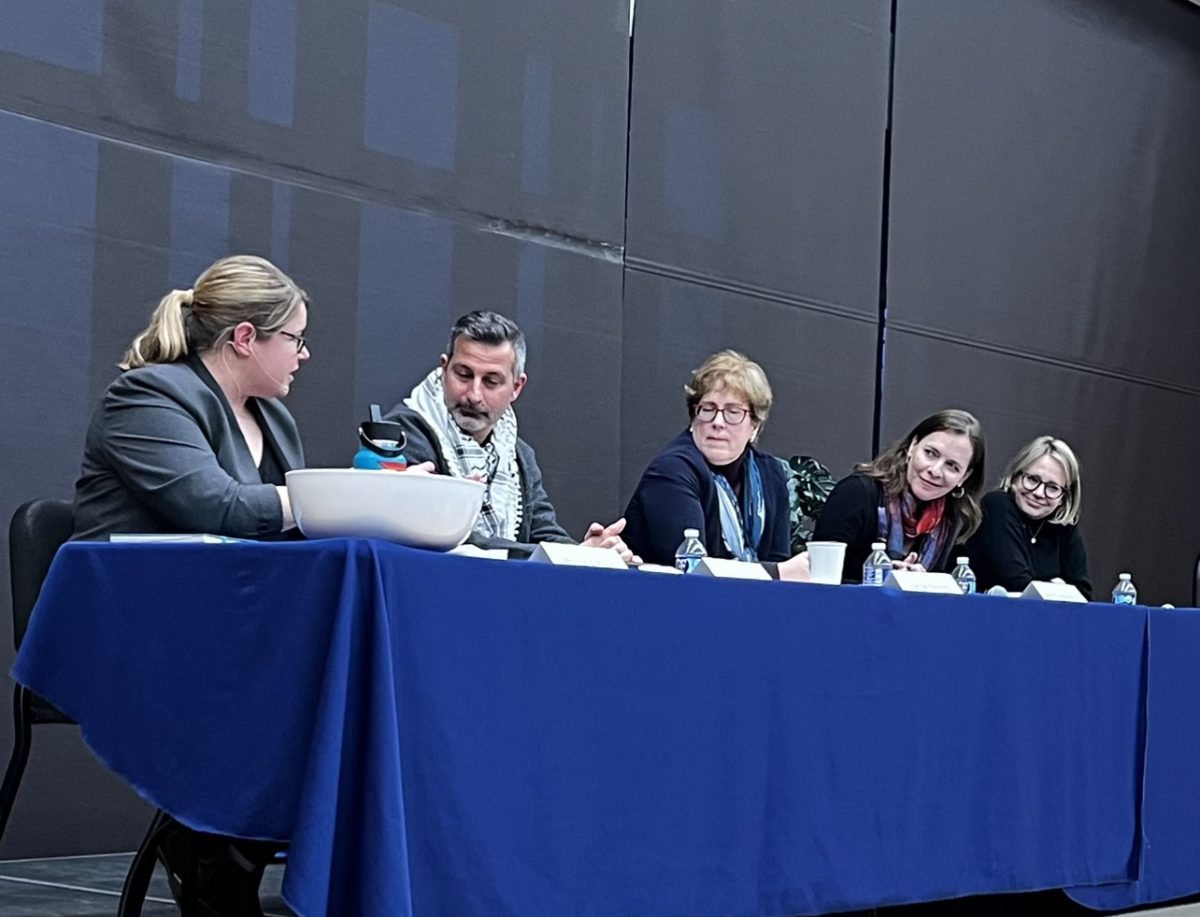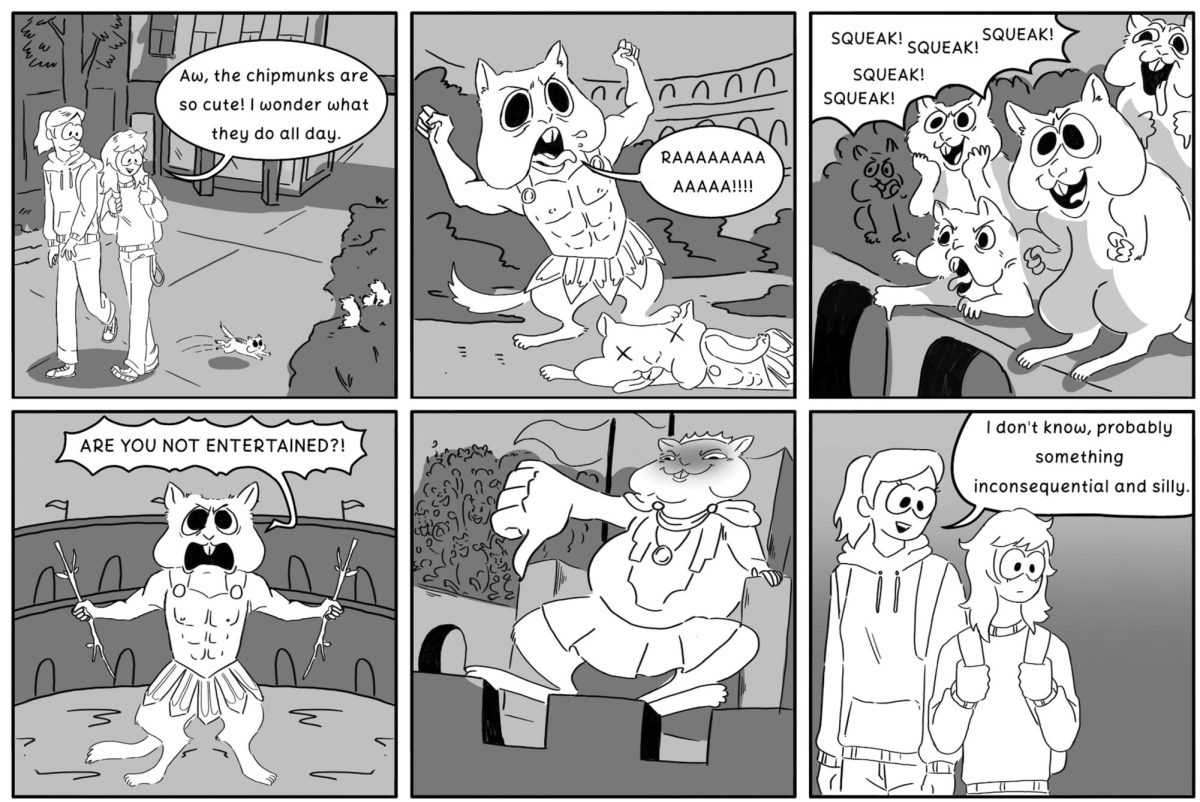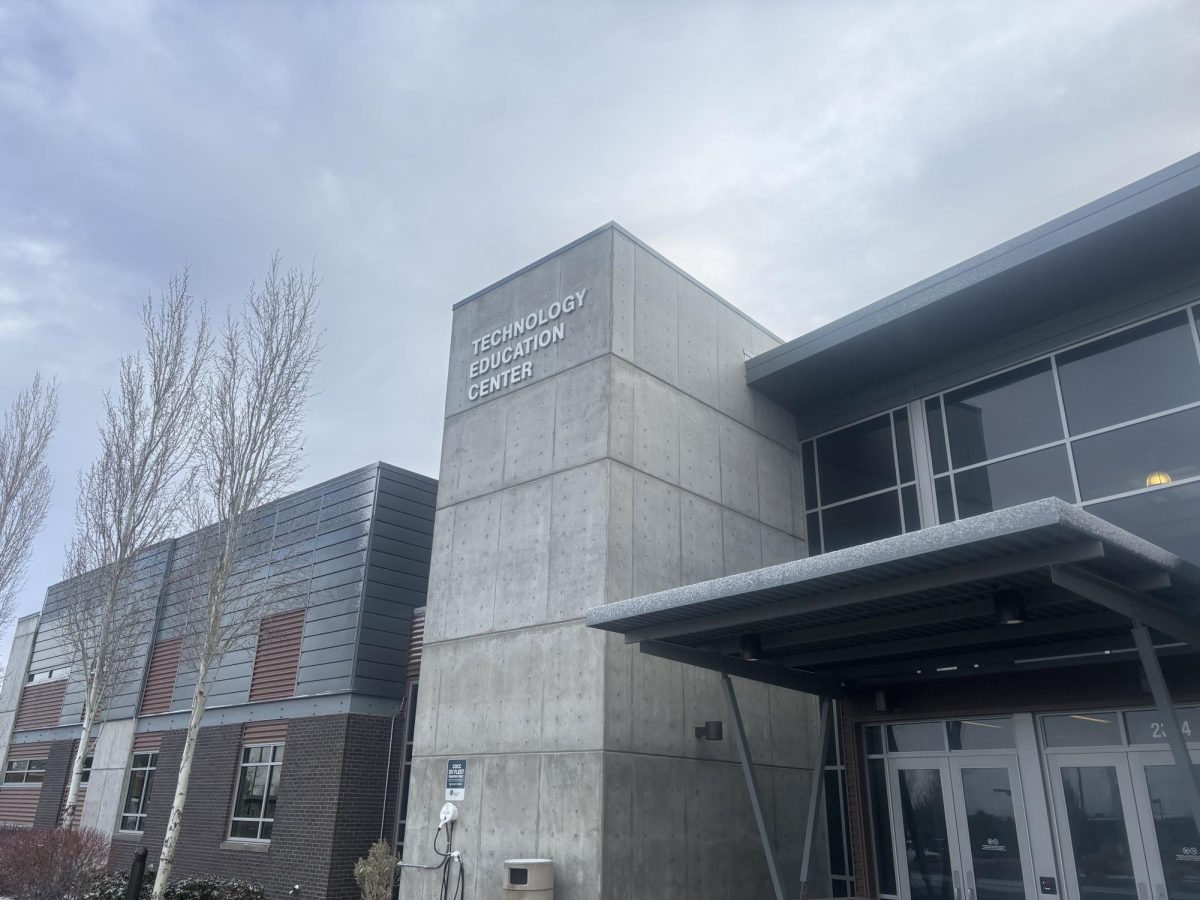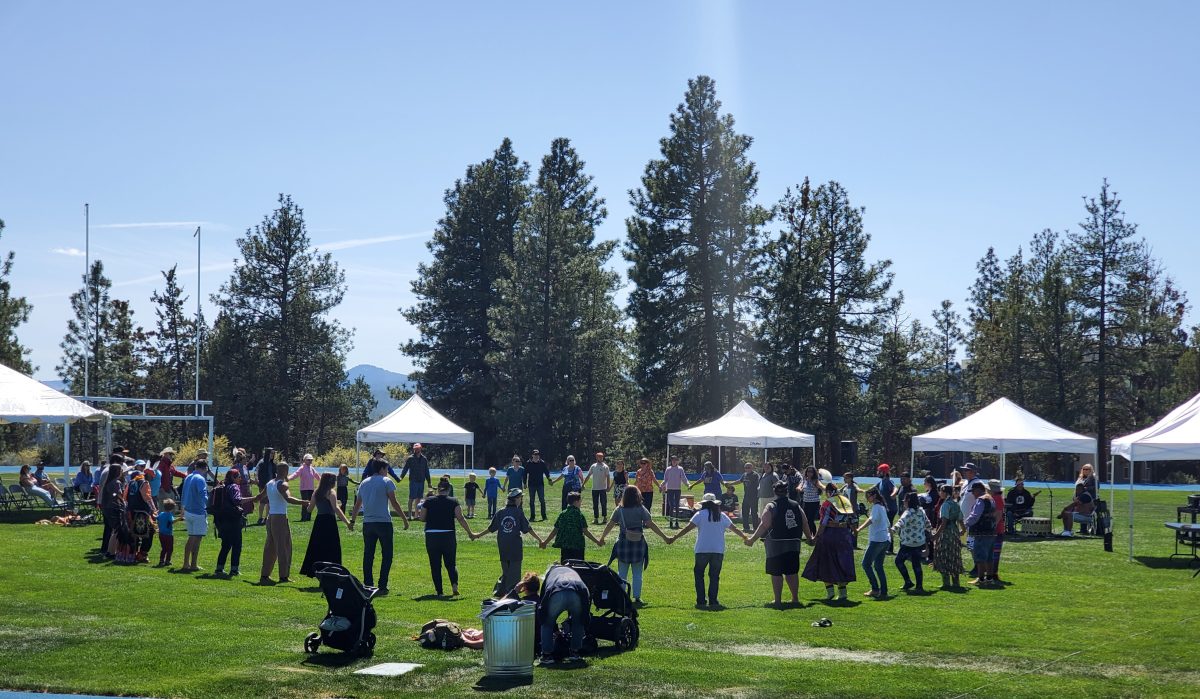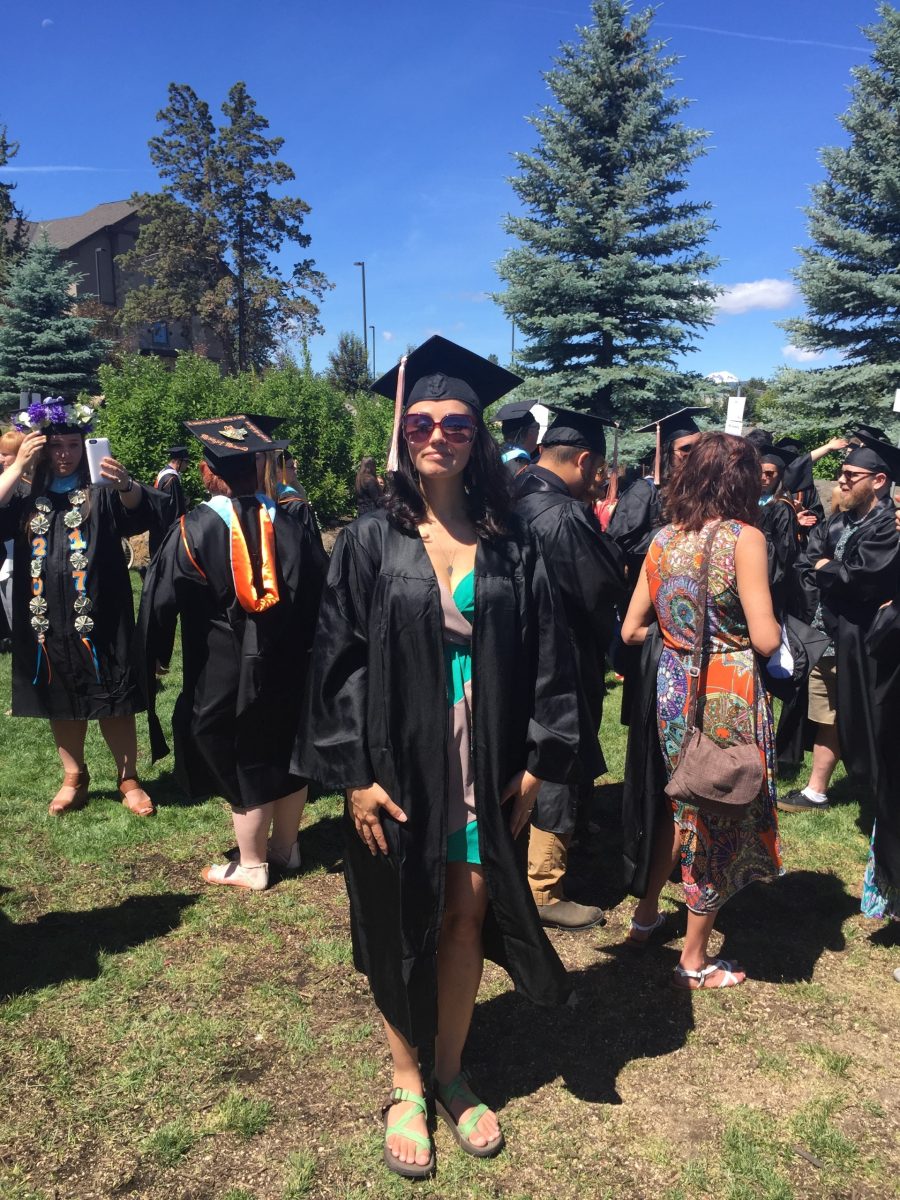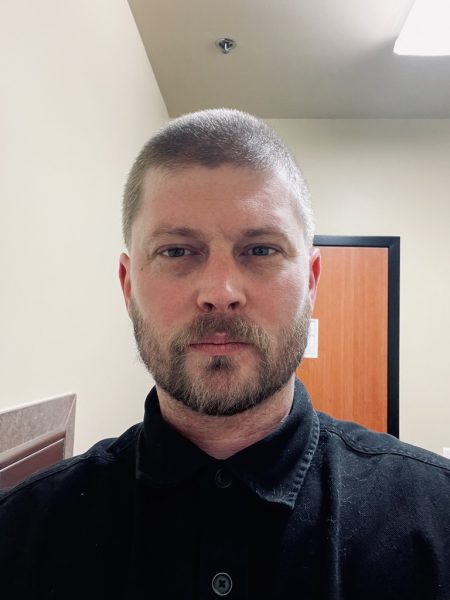As the war in Gaza continues, so too do the conversations that surround it as a moderated panel discussion featuring academics and community leaders took place Tuesday, Jan. 30, in the Willie Hall Event Center of Central Oregon Community College’s Bend campus, that examined the role of educators in higher-learning institutions when engaging the delicate subject with their students.
The panel, comprised of COCC President Dr. Laurie Chesley, COCC Assistant Professor of History Jessica Hammerman, Karim Bouris, a principal at Mixte Communications, and Oregon state Rep. Emerson Levy, was moderated by Morgan Schmidt and briefly joined by COCC’s Afrocentric Program Coordinator Marcus LeGrand.
The discussion was followed by a brief Q&A and is the second teach-in event covering the Israeli/Palestinian conflict to be held at the college since the events of Oct. 7.
“You have to be able to balance multiple perspectives, and I think that in the classroom it’s really important to show students that there are multiple perspectives on an issue. And see how things look on another side,” Hammerman said during the event, as panel members encouraged critical thinking and honest dialogue.
“I always give my students room to have their own, sort of, reflection,” she said, regarding her approach. Hammerman added that she believes the focus should be on giving students facts and teaching them how to discern information, rather than pushing a personal ideology or judging their students’ opinions.
Rep. Levy agreed and added that she believes answering students’ questions with humility and acknowledging the western lens with which we look at the world is important for educators to do when having these conversations.
“Putting that in context and seeing our own selves and our own flaws,” is where these conversations can start and grow, she said.
“It’s not our job to give them opinions or ideology, it’s ours to give them the facts and for them to wrestle with the hard things. And that prepares them for life,” Levy said.
Empathy, listening and reading were also highlighted as Hammerman encouraged students to read things that challenge them, make them angry, and force them from their comfort zones.
This was a sentiment Bouris agreed with.
“I just want folks to move a little bit out of their comfort zone, because you never learn in that space, and come into the learning zone,” he said.
“That’s critical thinking. That’s what we do in the classroom, first and foremost,” Bouris added.
Bouris believes the classroom is where teachers and educators can engage in debate and help their students understand the information they are consuming.
Be it TikTok, Instagram, online or mainstream news, now more than ever students can see the effects of war up close and non-stop. Navigating that can be tricky.
“You should be critically thinking about those messages that make you click,” he said.
Though the panelists mostly agreed and maintained polite conversation there was a small disconnect on the benefits of social media with Hammerman and Levy focusing on its ability to spread misinformation and conspiracy theories while Bouris finds it can be beneficial in helping under-reported areas get attention and dismantling state-fueled propaganda.
Bouris and Hammerman also commented on a breakdown in language and the fluctuating meaning behind words like anti-Zionism and ceasefire that can make having these conversations harder and encouraged students to look at their origins rather than their altered meanings or dog whistles to antisemitism.
For LeGrand, instructors having autonomy to openly discuss these topics with students is vital.
“I think ultimately, as an institution, or as an education institution, is that we need to figure out how we can protect ourselves to be able to have the freedom to do the things we need to do. Without any restrictions. And I think that’s ultimately what people want. Is to have agency,” he said.
As of now that agency is not something COCC instructors need to fear being stripped away as Bouris explained that COCC’s lack of private donor influence keeps curriculum in the hands of its teachers.
“That’s important and that’s where it should be,” President Chesley said, referring to teacher’s having and keeping control over their lesson plans and class discussions.
“We are all tied up together, our fates are interlocked. And the sooner we recognize that, the sooner we’ll get to where we are going,” said Levy in her closing remarks to those in the audience.
A previous lecture, also organized by Hammerman, featured Professor Mira Sucharov of Carleton University as she gave a contextualized history of the Israeli/Palestinian conflict for students and community members wanting to better understand the buildup to the ongoing struggles. You can watch a video of that lecture here.


